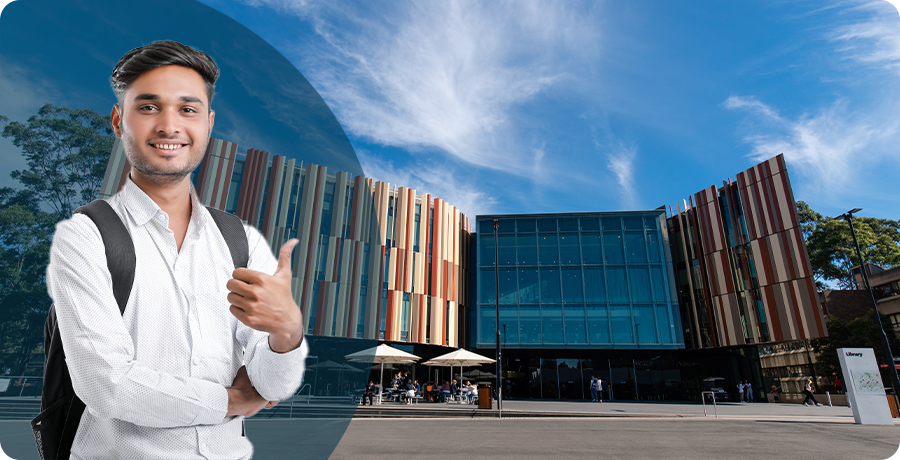Are you looking to study Biomedical Engineering in Australia? We have got your back. Here's your quick guide for Indian Students who want to Study in Australia.
Highlights of the Biomedical Engineering Course in Australia
- Australian universities are internationally renowned, ensuring a high-quality Biomedical Engineering education.
- Labs and research centres provide students with hands-on experience and exposure to the latest technologies.
- Biomedical programs in Australia emphasize practical learning, often linking students directly with industries for real-world experiences.
- Bachelor's and Master's programs allow students to choose their educational path based on their interests and career goals.
Why Biomedical Engineering in Australia?
- Aussie universities shine globally, ensuring you get a top-notch education.
- Think high-tech labs and research centers; that's what Australia brings.
- Biomedical programs in Australia often link you directly with industries, offering real-world experiences while you study.
- Institutions like the University of Melbourne, Australian National University (ANU), University of New South Wales (UNSW), Monash University, and the University of Sydney offer outstanding Biomedical Engineering programs.
Types of Biomedical Engineering Courses offered in Australia
Bachelor's in Biomedical Engineering:
- This foundational program provides a comprehensive understanding of biomedical principles, including biomechanics, medical imaging, and biomaterials.
Master's in Biomedical Engineering:
- An advanced degree that allows students to delve deeper into specialized areas such as medical device design, tissue engineering, or computational biology.
Biomedical Science Degrees:
- Programs focusing on the scientific aspects of Biomedical Engineering, covering areas like genetics, physiology, and molecular biology.
Biomedical Engineering Technology Courses:
- Practical programs that emphasize applying engineering principles to develop and maintain medical equipment and technology.
Biomedical Informatics Courses:
- Specialized courses in healthcare data management, bioinformatics, and medical imaging informatics.
Clinical Engineering Programs:
- Courses tailored for those interested in managing and maintaining medical equipment within a clinical setting.
Rehabilitation Engineering Courses:
- Programs focusing on developing assistive devices and technologies to enhance the quality of life for individuals with disabilities.
Biofabrication and Tissue Engineering Programs:
- Advanced courses exploring the fabrication of biological tissues and organs, incorporating materials science and biology principles.
Medical Imaging Degrees:
- Specialized programs centered around various imaging modalities, such as MRI, CT, and ultrasound, focusing on their application in healthcare.
Biomechanical Engineering Courses:
- Programs emphasizing the study of mechanical aspects of living organisms, including the mechanics of tissues and the design of artificial limbs.
Universities Offering Biomedical Engineering in Australia
Several esteemed universities in Australia offer outstanding Biomedical Engineering programs, providing students with quality education and research opportunities. Here are notable institutions where you can pursue Biomedical Engineering:
- University of Melbourne
- Australian National University (ANU)
- University of New South Wales (UNSW)
- Monash University
- University of Sydney
- University of Queensland
- RMIT University
- University of Technology Sydney (UTS)
- University of South Australia
- Queensland University of Technology (QUT)
Admission Process to Biomedical Engineering in Australia
- Eligibility- Strong background in Biomedical Engineering, often requiring completion of relevant coursework.
- Documents Needed- Academic transcripts, letters of recommendation, personal statement, and proof of English proficiency.
- Proficiency Test- Some universities may ask for standardized test scores, like the GRE or GMAT.
Visa Process
- Offer of Admission:
- Application Submission:
- Biometric Data:
- Visa Approval:
- Travel Arrangements
Cost of Biomedical Engineering Programs in Australia
Tuition Fees:
- Plan for around AUD 30,000 to AUD 45,000 annually for international students.
Cost of Living:
- Estimate about AUD 20,000 to AUD 25,000 annually, covering accommodation, food, transport, and other living expenses.
Scholarships for Biomedical Engineering Programs in Australia
Australian Government Research Training Program (RTP):
- Support for both domestic and international students pursuing research degrees.
University-specific Scholarships:
- Many universities offer scholarships based on academic merit, providing financial support to deserving students.
Career in Biomedical Engineering Programs in Australia
1. Biomedical Engineer:
- Be the wizard fixing and creating medical marvels.
2. Clinical Engineer:
- Manage and maintain medical tech in hospitals.
3. Biomechanical Engineer:
- Dive into the mechanics of the human body, perhaps working on excellent prosthetics.
4. Medical Device Developer:
- Craft and improve tools for medical diagnosis and treatment.
5. Research Scientist:
- Contribute to groundbreaking research in the dynamic field of Biomedical Engineering.
FAQs:
1. Q: What are the entry requirements for Biomedical Engineering programs in Australia?
- A: Entry requirements vary by university but generally include a strong academic background in science or engineering, proficiency in English (often demonstrated through language tests), and submission of relevant documents like transcripts and recommendation letters.
2. Q: Are specific scholarships available for international students pursuing Biomedical Engineering in Australia?
- A: Many universities offer scholarships based on academic merit or specific criteria. Additionally, government-funded programs like the Australian Government Research Training Program (RTP) support both domestic and international students pursuing research degrees.
3. Q: What career opportunities can I explore after completing a Biomedical Engineering program in Australia?
- A: Graduates can pursue diverse roles, including Biomedical Engineer, Clinical Engineer, Biomechanical Engineer, Medical Device Developer, and Research Scientist. The comprehensive programs prepare students for a wide range of exciting career paths.
4. Q: How long does it take to complete a Biomedical Engineering Master's program in Australia?
- A: Master's programs typically span two years, but the duration can vary. Some universities offer accelerated or extended options, allowing students to tailor their study timelines.
5. Q: How does the Australian education system foster practical skills in Biomedical Engineering?
- A: Australian universities prioritize practical learning through state-of-the-art laboratories, research centres, and industry collaborations. Students engage in hands-on projects, ensuring they develop the skills needed for real-world applications in Biomedical Engineering.








.png)


.png)
